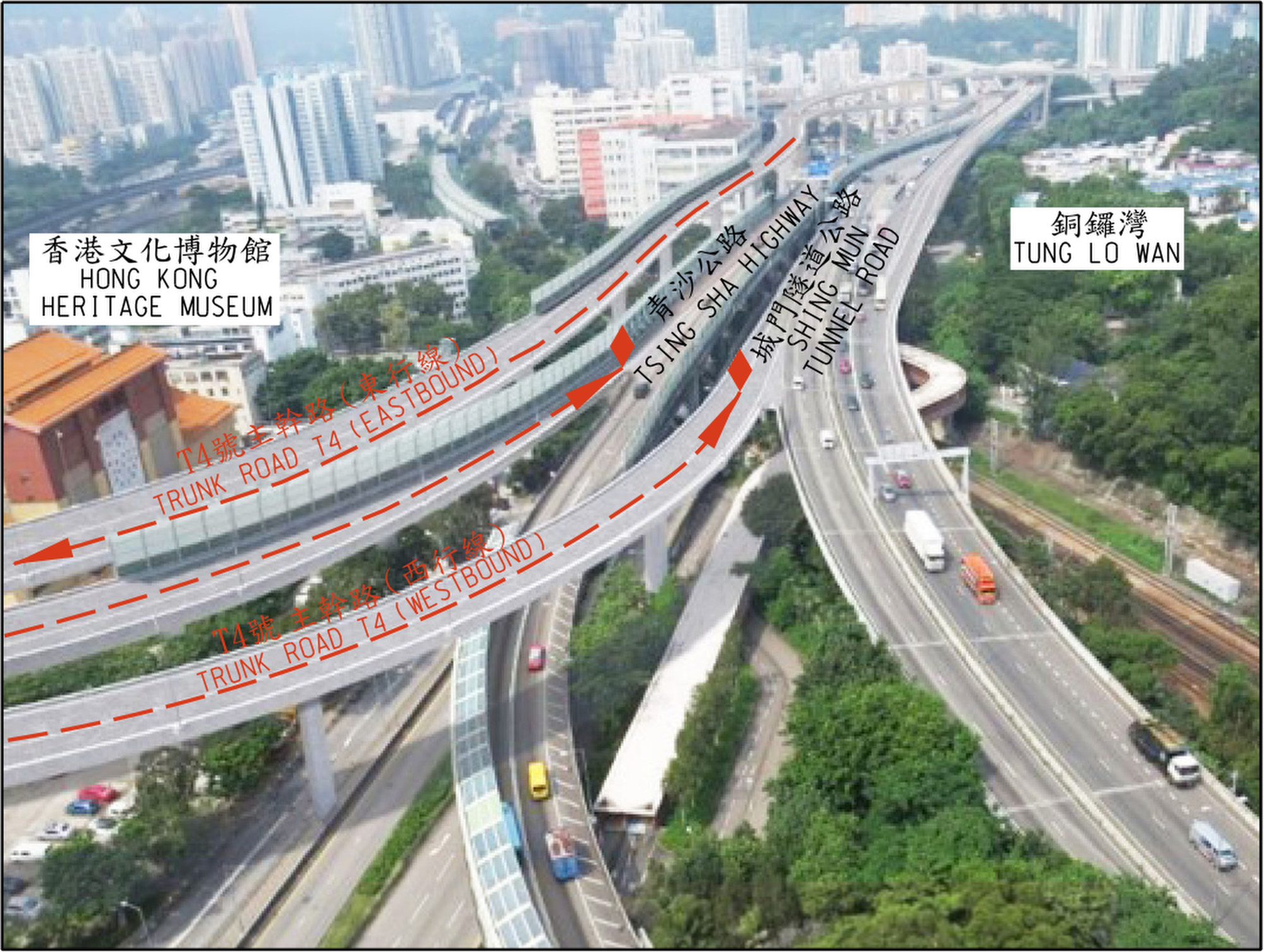
Hong Kong lawmakers give green light to HK$6.8 billion Trunk Road T4 highway project
- After four-hour Finance Committee meeting, 61 lawmakers endorse project linking Ma On Shan with Tsing Sha Highway and Shing Mun Tunnel Road
- But three lawmakers vote ‘no’, saying cost is too high even after government trimmed funding request
Hong Kong lawmakers have approved a controversial plan to build trunk roads aimed at easing traffic congestion in Sha Tin at a cost of HK$6.8 billion (US$870 million), although three legislators opposed the project even after the price tag was cut amid criticism.
After a four-hour meeting of the Finance Committee on Friday, 61 lawmakers endorsed the Trunk Road T4 project, spanning 2.3km (1.4 miles), that will link Ma On Shan with the Tsing Sha Highway and Shing Mun Tunnel Road.
Doreen Kong Yuk-foon, Tik Chi-yuen and Gary Zhang Xinyu voted “no”, while 12 lawmakers abstained, including Johnny Ng Kit-chong, Connie Lam So-wai, Kitson Yang Wing-kit and Reverend Canon Peter Douglas Koon.
The green light came after the Transport and Logistics Bureau cut its funding request from HK$7.1 billion to about HK$6.8 billion, a 5 per cent reduction.
The bureau said it could save money by employing less sophisticated materials and dropping certain planned community facilities. Using less costly materials to build noise barriers would save HK$120 million, while doing away with plans for a cycling bridge and a lift would bring the price down by another HK$100 million, it said. The bureau also plans to scale down certain landscaping works to shave a further HK$30 million off the price tag.

But the cost-cutting did not go deep enough to sway all lawmakers. Tik, the sole non-establishment member in the legislature, found the revised cost unacceptable.
“You are not cutting costs by enhancing efficiency. You are just doing less,” he said. “It is not what the public has expected.”
Lawmaker Ng echoed the sentiment, saying the government must spend carefully, noting Hong Kong was contending with a budget deficit.
Legislator Erik Yim Kong pointed out the project cost translated into about HK$3 billion per kilometre. The cross-border high-speed rail project cost HK$3.3 billion per kilometre, while the corresponding figure for the Hong Kong-Zhuhai-Macau Bridge was HK$2.3 billion, he noted.
“There should be room for further cuts,” he said.
Lawmaker Yang also questioned why the project needed underpasses, expected to cost about HK$2.12 billion.
Transport minister Lam Sai-hung argued the underpass option was the result of public consultation and overhauling the plan at this stage was infeasible.
“Having examined the costs, feasibility and impacts of various options, we confirm that the current scheme of T4 is the best option, which accommodates both functionality and cost-effectiveness, as well as balances the interests of all parties,” Lam said.
The government had dropped certain facilities to address public concerns over the cost of the project and authorities had sought to strike a balance with the overall design, he explained.
He also stressed the project would do more than simply ease traffic congestion in Sha Tin, saying it could benefit all of the eastern New Territories.
Gary Chan Hak-kan of the Democratic Alliance for the Betterment and Progress of Hong Kong said the savings gained under the revised budget were nominal, while Lo Wai-kwok of the Business and Professionals Alliance for Hong Kong questioned whether the government would end up shelling out more to build the scrapped facilities at a later date. But both lawmakers aligned with their party’s position on the highway and supported the funding request.
The Liberal Party also backed the project, member Frankie Yick Chi-ming said, stressing its social benefits should not be overlooked. He cited official estimates that the T4 project could result in HK$5 billion in economic gains in 10 years.
The project mainly comprises a dual two-lane trunk road 2.3km long with slip roads connecting Shing Mun Tunnel Road, Tsing Sha Highway and Sha Tin Road. It also involves widening a section of Sha Tin Road into a dual four-lane highway.
The bureau originally sought HK$7.16 billion in funding, but abruptly withdrew the request in March amid speculation not enough lawmakers would support it after some noted the cost was six times the original HK$1.1 billion estimate made in 2006.
Legislator Michael Luk Chung-hung of the Federation of Trade Unions urged the government to closely monitor the construction to guard against cost overruns.
Michael Fong Hok-shing, the director of civil engineering and development, promised careful supervision of spending, and pointed to an arrangement that required contractors to cover any extra costs past a certain level.
Lawmaker Michael Tien Puk-sun of the Roundtable group voted said a big part of the increase in the estimated cost was due to the need to accommodate residents’ requests to minimise the adverse impacts of the project on their living environment.
“In this sense, I do not think the price tag is unrealistic or unjustifiable,” Tien said after the voting.

